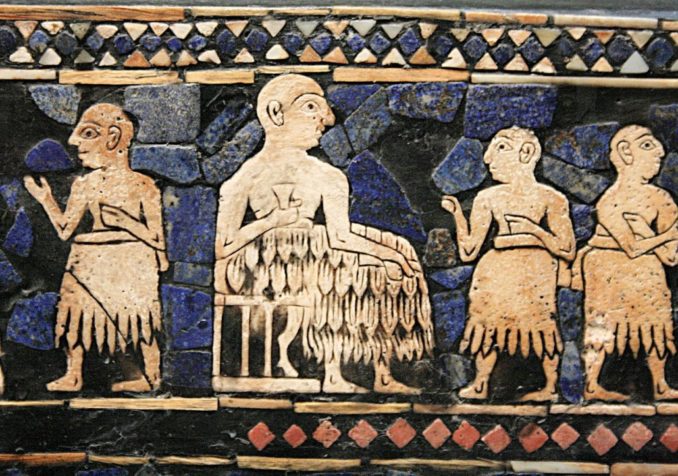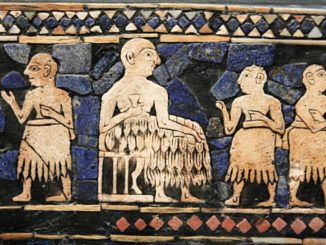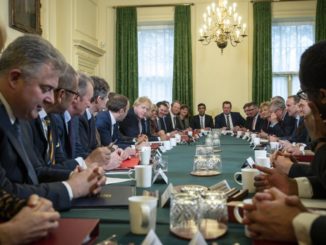
Michel wal (travail personnel (own work)), CC BY-SA 3.0, via Wikimedia Commons
Prior to written documents being exchanged as representations of mutually agreed perceived value, the concept of money arose amongst multiple trading groups. This may have taken place prior to the credit/debit system as a substitute for direct barter. Money, whether composed of species of shells or artistically created beads, metals, etc., was a commodity created specifically for enabling exchanges of value. As such the money object had to have intrinsic value in and of itself; it did not represent someone else’s liability to the current holder. Various forms of money came to be exchanged, one for the other, again at an individual mutually agreed perceived value, and so the new economic technology of financial service had been invented.
All these advances along with humanity’s other technological and energy-usage innovations coincided with broader communications and larger communities and ever greater market driven specialization in production of goods and services. A new category of services, government, developed very locally and expanded just as widely and rapidly initially as methods of protecting and marshalling markets amongst and between groups. Regulation of market activity was enhanced greatly by the conversion from money as valued token to metal money that had immediate utility and more generally agreed upon intrinsic value. Both private metal money and governmental metal money coexisted, but that based on some level of accepted governance gradually extinguished, often by edict or force, private sources. After all the local lord, prince or king “guaranteed” the coinage’s metal content with inscriptions, symbols, or faces stamped thereon. This was key to further expansion of the benefits of the division of labor, or specialization, as Jean-Baptiste Say has written, as it requires a medium of indirect exchange, i.e., money. As Nathaniel Brown wrote in a November Mises Wire article, “money is one half of all economic exchange”.
© Nik Bednarski, M.D. 2023



